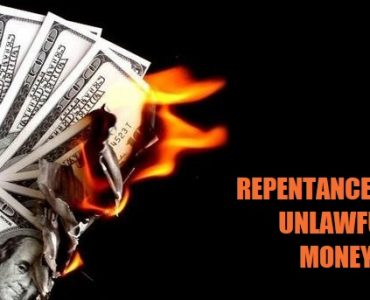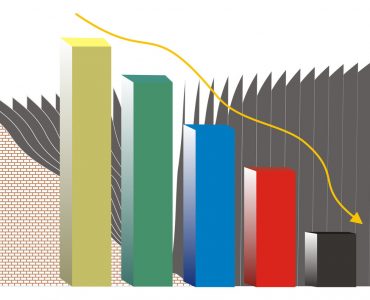Interest is the income provided by ‘capital’, which is a factor of production. In other words, it is a sum paid or charged for the use of money or for borrowing money. It is usually expressed as a percentage of money borrowed to be paid over a given period, usually one year.
Alms is defined as, the economic value donated voluntarily and it is interpreted as charity.
In economy literature, interest is an unavoidable parameter of equilibrium models that motivates the relaying of capital.
The Glorified Allah commands:
“Allah constricts interest, increases alms. And Allah loves not any archsinner who is a confirmed ignorant.” (Al-Baqara/The Cow 2/276)
The Glorified Allah compares two concepts objectively and exposes a result in the verse above.
To be able to compare two things, they both should be of the same kind. If interest is an economic parameter, the compared concept should also be an economic parameter. The main misunderstanding begins when this detail is ignored and alms is excluded from ecomonic equilibrium models. Importance of alms is degraded by interpreting it as charity only.
The aspect of the issue about sin or sawab is another subject to whom it concerns.
The words ‘consctrict’ and ‘increase’ in the verse above, may be used for the economic term MARKET .
In economics ‘MONEY’ is a basic and real argument that marks off the market boundaries. A person with no money to spend cannot have any economic activities. Every individual may trigger or specify economic activities as much money as he/she owns.
Interest functions to raise macro-economic values. However, it actually decreases the ability to purchase and thus the number of people that purchase and sell. The ability of people or companies to borrow with interest also requires specific qualifications.
Alms/Zakah, on the other hand, broadens the market. A wealthy person includes many people into economic activities by means of Alms/Zakah , that does not need to be returned. Thus, people who were not able to enter the market a short while ago, may become demanders soon. In other words, the power to purchase increases from one unit to two.
Donators (of alms/zakah) are people with a tendency to spare rather than to spend. The receivers of alms/zakah are more tend to spend due to their position or necessities. Therefore, the number of people with purchase requisiton increases rapidly by means of alms and zakah. This effect, will increase trade volume when excelled by economic multiplication factor and cause economic values to raise.
We need to notice that alms and zakah broadens trade volume.
Interest, however, constricts trading. Accumulation of capital in hands of a particular party is the trigger of this mechanism.
Movement in economics may be provided by changing forms of consumption. Capital owners obtain a fictive shift in prices of estate, artwork and marginal goods by means of created brands. Another method is manipulating the image of some technical, electrical etc. goods to ascribe them as criterion in social scale and thus, increase their prices. Cost of interest and various fictive costs are included into this price. They cause waste of money as well as serving the capital to gather in the hands of specific parties. Therefore, economic value, that is Gross National Product, may augment cumulatively. But what really matters is that, whoever cannot make money or value is kicked out of the market, which unavoidably creates the mechanism of unjust distribution of income.
Therefore the verse above also expresses the meaning:
“Interest constricts trade where zakah improves.”
The word ‘improve’ also contains the meaning ‘broaden’. Also by the motivation of increased purchase requisition, improvement of R&D, science, technology and manufacturing is triggered.
We will try to explain the analytic expansion of the above theories, but we should emphasize that, the concept called ‘Economy’ or ’Market’ is shaped and characterized by following four basics:
- current assets, services and their manufacturing devices (capital)
- free choices of persons
- purchasing power of persons (income)
- effective law.
There are many sub-factors and criteria of these basics.
Known doctrinal approaches have a political law system that is realised by all other actors and the human protoype who is mechanised, whose choices are turned into a cliché. It might be thought that it should be this way to expose an expression. In today’s world, however, borders are albolished, the valuation of money is defined by the war power of countries (or pacts) rather than an objective material parity like gold and therefore mentioned doctrines have lost their integrity. Dominating economies and their strategies to keep on domination are, hands behind the scene that intervene economic life.
It is the time for discussion of a natural economic model, that will resolve the main problems of world economy. I think, this research is inevitable for modern economy engineers.
Hasan Mustafa Arslan
Süleymaniye Foundation Management Board Member







Add comment